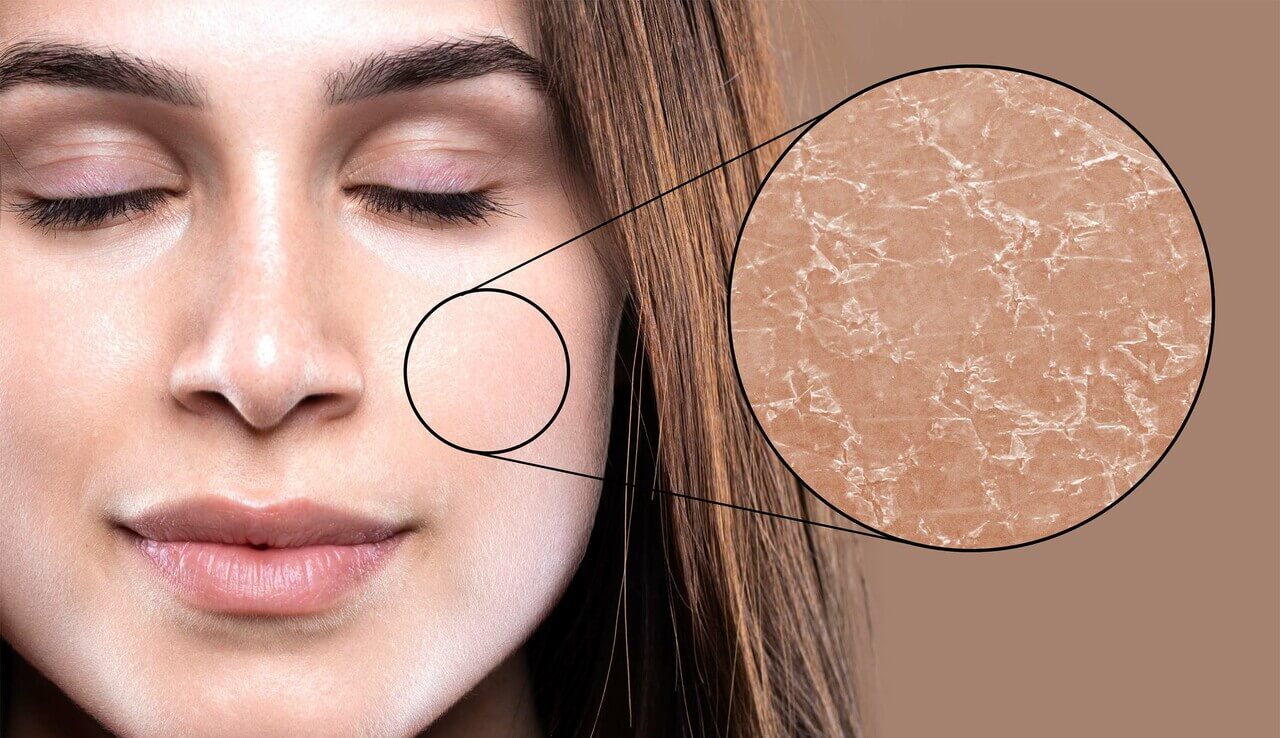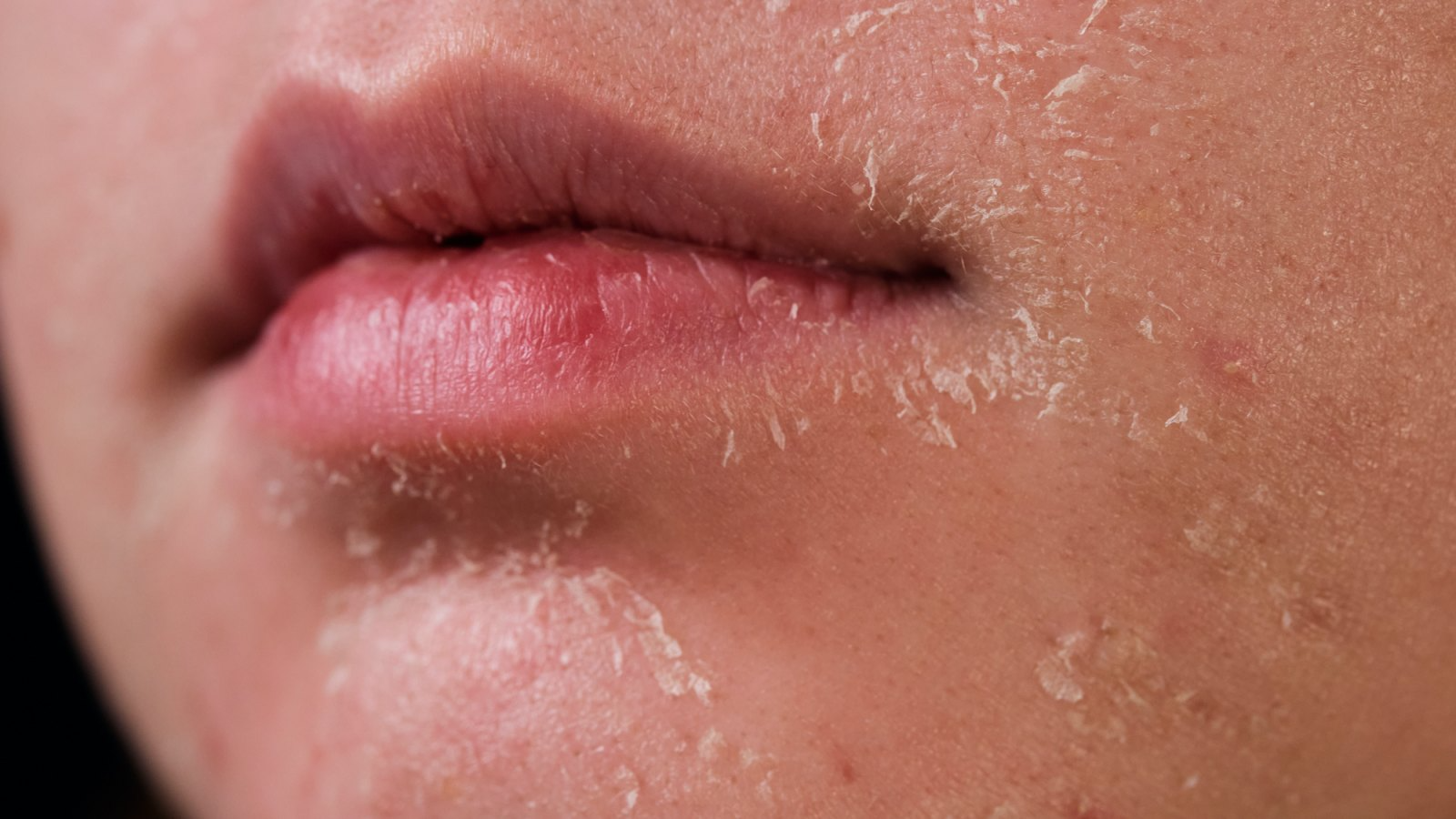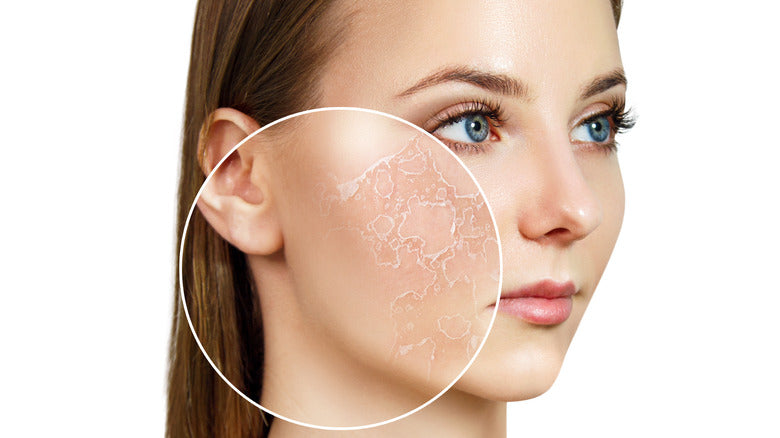
Everything About Dry Patches On Face and Ways to Deal With IT
Overview
Winter has just begun and so do your skin problems. If you are one of those who suffers from dry patches and winter is equal to a nightmare, then you have come to the right place. You might have tried many winter skincare hacks but most of them failed or delivered poor results. The main reason behind this is none of them addresses the reason for your dry patches. Dry patches can occur due to many reasons ranging from Psoriasis to under-nourished skin. And you should identify the reasons to find the right solution for you. Today, we will discuss everything about dry patches on faces, their reasons, symptoms, how to deal with this skin problem, and more.
Table of Contents
So, keep reading to understand the reason behind your dry patches and a suitable solution according to it. We will share a detailed guide on dry patches on face and the right method to deal with them. So get ready to change your winter experience and make the most of this beautiful season without worrying about dry patches!
What causes dry patches on face?
If you are wondering ‘Why is my skin so dry even when I moisturize?’ then you should learn the causes behind your skin condition. It will help you find the right prevention and restoration method for optimal results. There is no one universal cause behind dry patches.
Different causes require different solutions according to it. Below we will discuss some common causes of dry patches on the skin–
Eczema – Eczema is a common skin disorder that triggers irritated and dry skin. Most Eczema cases are genealogical and occur since childhood but some adults also develop it Eczema.
Psoriasis – Psoriasis is another inflammatory skin disorder that leads to dry skin patches. Psoriasis causes thickened, discolored, gray, or silver plaques on skin that are hard to remove.
Seborrheic Dermatitis – This skin disorder primarily occurs on the scalp. But it can also appear on hairline, sides of the nose, ears, eyebrows, etc.
Contact dermatitis – Contact dermatitis is a type of eczema. It looks like Eczema caused by allergic reactions but does not come genealogically.
Other factors – Besides the above skin disorders several other factors can also cause dry patches such as environment, lifestyle, dehydration, medication, weather, age, occupation, etc.
Symptoms of Dry skin
Dry patches are not a rare skin condition, many people struggle with it at different times of their life. So, before it is too late, learn about the common symptoms of dry patches to find the best moisturizer for dry skin and prevent future suffering.
Here, we will discuss some common symptoms of dry patches on the skin-
- Skin looks and feels rough.
- Painful skin surface.
- Moderate to extreme itchiness.
- A feeling of tightness in the skin.
- Peeling or scaling skin.
- Flaky skin.
- Redness and swollen skin areas.
- Rough, discolored, and thickened skin.
- Painful skin cracks that can lead to bleeding.
- Signs of skin infections.

How to Treat dry patches on face?
Dry patches on face can be really bothersome and painful especially if the symptoms are severe. Till now, we have discovered the common causes of dry patches and common symptoms associated with this particular skin condition. Now, we will discuss some essential tips to treat your face’s dry patches-
Modify your shower – If you are currently wondering ‘Why is my skin so dry even when I moisturize?’ the main culprit behind your skin condition may not be the moisturizer but your showering patterns. Using too warm water for a shower or taking an hour long can lead to dry skin patches. So, limit your shower time to 10 minutes with lukewarm water.
Wash your face gently – Rough scrubs on the face can trigger dry patches that often result in dry patches. So, you must gently wash your face with a skin-friendly facewash or soap bar. It will help to treat dry patches and prevent further damage.
Avoid washing your face multiple times a day – Do you know that frequently washing your even with plain water can make your skin dry and cause dry patches? So, if you are prone to developing dry patches or currently suffering from it, you will benefit by avoiding multiple washes per day.
Apply moisturizer – Applying moisturizer thoroughly is essential to heal your face skin and treat dry patches. Often under-nourished or dehydrated skin can develop dry patches. So, select the best moisturizer for dry skin and apply thoroughly as directed to treat your face’s dry patches.
Use lip balm – Cracked and chipped lips are common in dry and harsh weather. It can also lead to the development of dry patches on your lips. To treat dry patches on your lip, use highly nourishing lip balm enriched with natural oils and vitamins. It will treat dryness and keep your lips well-moisturized and soft.
Bundle up in soft cotton – If your dry patches are severe and painful you might feel relieved by bundling up in soft cotton after moisturizing the affected area thoroughly. Remember, to keep your skin safe and avoid rough scratches and scrubs to let it heal.
Skip hot and spicy foods and drinks – Hot and spicy food triggers inflammation inside your body. It may worsen your dry patch symptoms. So, if you want to treat dry patches, and prevent further damage, you must avoid consuming hot and spicy food. Also, eating cold or light warm food that is soothing for your body can make you feel better and increase your recovery rate. You must also drink plenty of fresh water and fruit juice for better results.
Prevention tips
It is always better to be safe than sorry! You must follow this rule in any aspect of your life whether it is about health, skincare, or something else. Preventing dry patches on your skin including your face is far better than suffering and treating it later. So, if you notice dry skin around your mouth or other signs of dry patches, you must take preventive measures to prevent it from occurring.
Here, are some essential tips for preventing dry patches on your face-
- Drink plenty of water. Believe it or not, water can solve any problem including the dry patches on your face. Drinking a sufficient amount of water helps to clean your body’s toxins and keep your skin cells hydrated. As a result, it prevents dryness, cell damage, or untimely death of skin cells.
- If you have dry skin and are prone to dry patches, try to use a humidifier to balance the moisture of your room and below moisturized air over your skin to keep it moisturized and healthy.
- Focus on stress management. You may not know that stress and hypertension results in some chemical reaction inside your body which can trigger skin disorder and develop dry patches. So, if have any tendency to develop such skin, you must actively manage your stress. And if you think you need help you can consult with experts to prevent it from happening.
∙ In addition, you should practice yoga or exercise, eat healthy food, limit screen time, avoid nicotine and alcohol, and follow a proper skincare routine to prevent dry patches on your face.
FAQ
– What do dry spots on your face mean?
Dry patches or spots on your face can be a sign of a skin disorder such as Psoriasis, Eczema or it can happen as you age, after a specific medication, weather, or something else. A dry spot on your face means the development of a dry, rough, discolored section of your face skin that also triggers the sensation of itchiness and pain.
– How long do dry patches on face last?
It depends on the cause and severity of the dry patch condition. If the patch is caused by environment or lack of hydration then it can go away quickly as you begin to moisturize it with the best moisturizer for dry skin or avoid harsh weather. However, if it is caused by a skin disorder such as Psoriasis and symptoms are severe, then it will take some time to heal.
– Do dry patches go away?
Yes, dry patches go away if you take proper care and use the right treatment at the right time. However, if you do not take care of your skin even after noticing the basic signs of dry patches then it will become worse as time passes. The severity of dry patch symptoms, such as itchiness, dryness, pain, and swollenness will increase day by day and cause skin cracking, bleeding, and infections. So, you must use proper treatment timely.
– Why am I getting itchy patches of skin?
Itchy patches are mostly caused by allergens or irritants. It can be caused by any allergens or irritants including imbalanced body chemicals or outside triggers such as wool, chemicals, or soaps.

Summary
If you are currently searching ‘Why is my skin so dry even when I moisturize?’. Then a wide range of reasons can be responsible for your skin condition. From environmental factors to age, weather, and skin disorders anything can cause dry patches on your face skin.
However, if you identify the reason behind your dry patches and take the proper steps, you can successfully prevent or treat dry patches on your face. Above, we have discussed everything you need to know about dry patches and ways to battle with this devil.